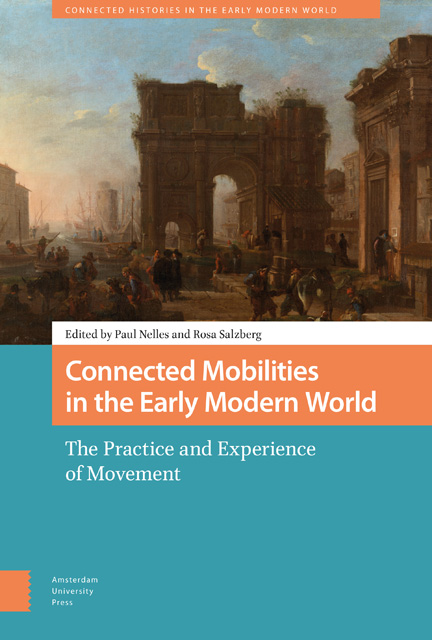5 - News on the Road: The Mobility of Handwritten Newsletters in Early Modern Europe
Published online by Cambridge University Press: 15 June 2023
Summary
Abstract
In light of the mobility turn in the humanities, this chapter attempts to rethink networks of communication and the circulation of handwritten news in early modern Europe. Challenging assumptions about the ‘private’ or ‘secret’ nature of handwritten communication, the chapter focuses on the intermediality of news sheets. It traces the movement of news as a series of operations combining practices of textual manipulation, writing, and copying in the newswriter’s workshop, the physical mobility of news sheets by means of postal networks and other mechanisms of transmission, and linguistic mobility through repeated translation. The mobility of handwritten news was linked to its format, which allowed for constant small corrections, adaptations, and changes to pieces of moving text. But news must also be seen in dynamic relation to stable infrastructures such as the postal system and newswriters’ workshops.
Keywords: news; avvisi; postal systems; manuscript culture; translation; Communication
If the mobility turn in history is beginning to provide a new understanding of movement, interaction, and encounter in the past, the history of information and networks of communication are a central topic to re-assess. Handwritten newsletters (avvisi in Italian, geschriebene Zeitungen in German, cartas de aviso in Spanish, nouvelles à la main in French), namely manuscript sheets containing fresh news that kept Europeans up to date about current events from the mid-sixteenth through the eighteenth centuries, help us to reflect on the implications of a mobilities turn in history from both a material and an epistemological perspective. Historians have studied the movement of people, goods, and news through centres – courts, cities, postal hubs – and also peripheries. They have shown how news travelling along these networks kept members of the network informed, and how these same individuals in turn spread the news more widely and influenced or even ‘disturbed’ other national or ethnic communities, though without actually modifying them. In this traditional view, although individuals, goods, and information entered into movement and came into contact, nonetheless fixity or ‘sedentarism’ constituted a kind of natural condition. It is a conception that, as Caren Kaplan writes, “rests on forms of territorial nationalism and their associated technologies of mapping and visualisation which emerged out of the Enlightenment cosmic view of the world.”
- Type
- Chapter
- Information
- Connected Mobilities in the Early Modern WorldThe Practice and Experience of Movement, pp. 133 - 156Publisher: Amsterdam University PressPrint publication year: 2022

